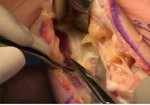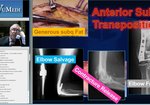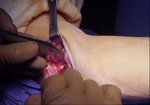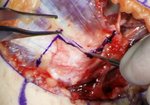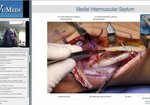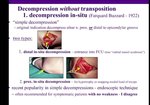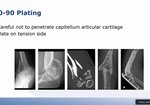Playback speed
10 seconds
Transmuscular Ulnar Nerve Transposition - Presentation
6,157 views
April 10, 2012
<!--Code is buggy. I cannot use <br> or </br> and instead using </strong> for line ...
read more ↘ breaks-->
<strong>High Definition Version - https://vimeo.com/40108441
</strong>
<strong>Education Website - http://nervesurgery.wustl.edu
Video Library - https://vimeo.com/user6062882
</strong>
<strong>2012 Vumedi – Transmuscular Ulnar Nerve Transposition - Presentation</strong>
Authors: Susan E. Mackinnon MD, Andrew Yee BS
Date: 4/10/2012
</strong>
This presentation was given during the Vumedi on-line webinar on 4/10/2012 regarding the appropriate surgical treatment for cubital tunnel syndrome (CTS). Specifically, this presentation covers the topic of transmuscular ulnar nerve transposition. While there is controversy on the best surgical management for CTS, we believe that there is no “best” procedure for attaining optimal patient outcomes. However, understanding the etiology of CTS and performing the chosen surgery effectively will improve patient outcomes. In this presentation, we describe the underlying problems of CTS and demonstrate specific techniques for treating it.
</strong>
Narration: Susan E. Mackinnon
Videography: Andrew Yee
</strong>
Terms of Use and Private Policy: nervesurgery.wustl.edu/pages/termsofuse.aspx
↖ read less
read more ↘ breaks-->
<strong>High Definition Version - https://vimeo.com/40108441
</strong>
<strong>Education Website - http://nervesurgery.wustl.edu
Video Library - https://vimeo.com/user6062882
</strong>
<strong>2012 Vumedi – Transmuscular Ulnar Nerve Transposition - Presentation</strong>
Authors: Susan E. Mackinnon MD, Andrew Yee BS
Date: 4/10/2012
</strong>
This presentation was given during the Vumedi on-line webinar on 4/10/2012 regarding the appropriate surgical treatment for cubital tunnel syndrome (CTS). Specifically, this presentation covers the topic of transmuscular ulnar nerve transposition. While there is controversy on the best surgical management for CTS, we believe that there is no “best” procedure for attaining optimal patient outcomes. However, understanding the etiology of CTS and performing the chosen surgery effectively will improve patient outcomes. In this presentation, we describe the underlying problems of CTS and demonstrate specific techniques for treating it.
</strong>
Narration: Susan E. Mackinnon
Videography: Andrew Yee
</strong>
Terms of Use and Private Policy: nervesurgery.wustl.edu/pages/termsofuse.aspx
↖ read less
Comments 1
Login to view comments.
Click here to Login


